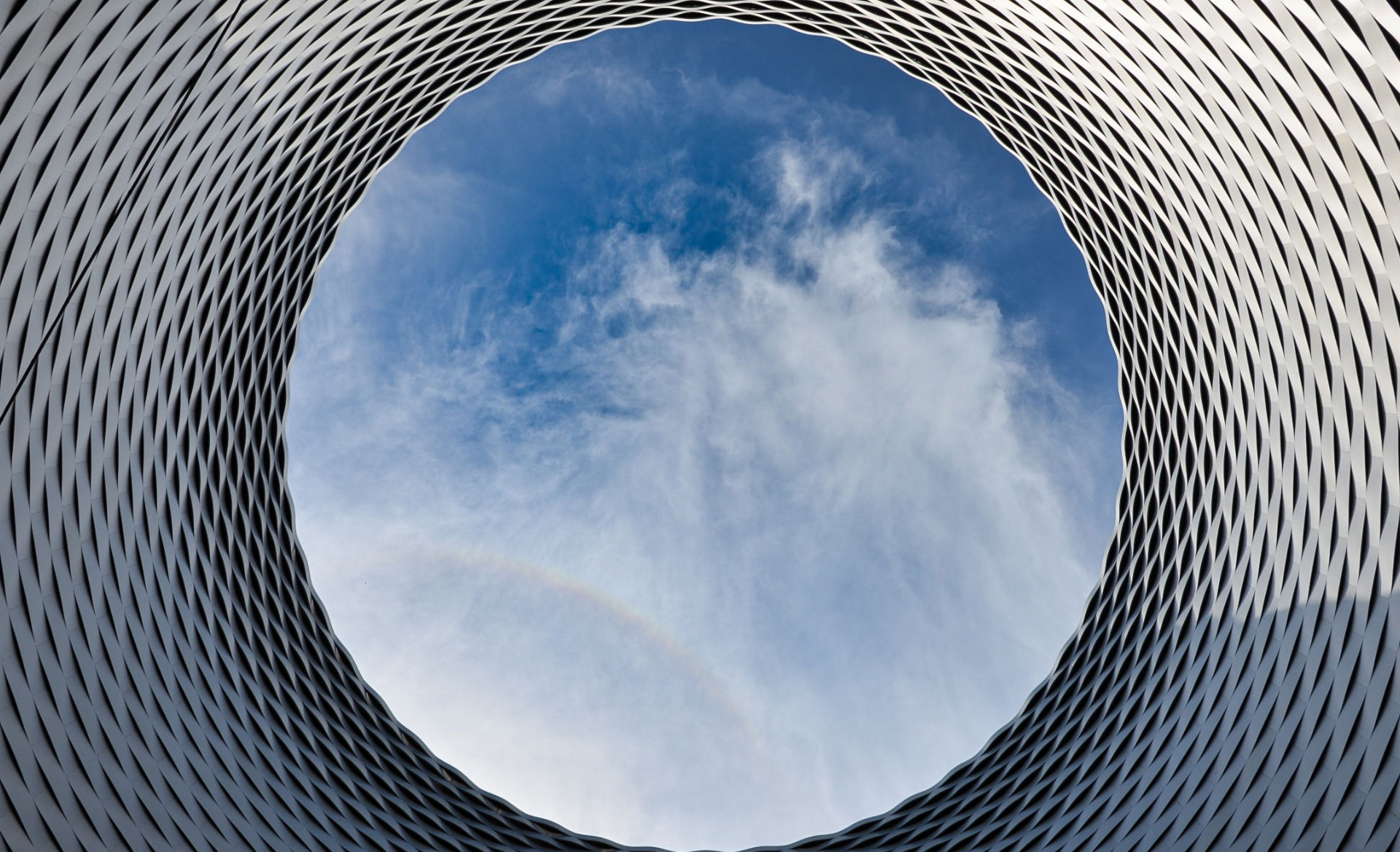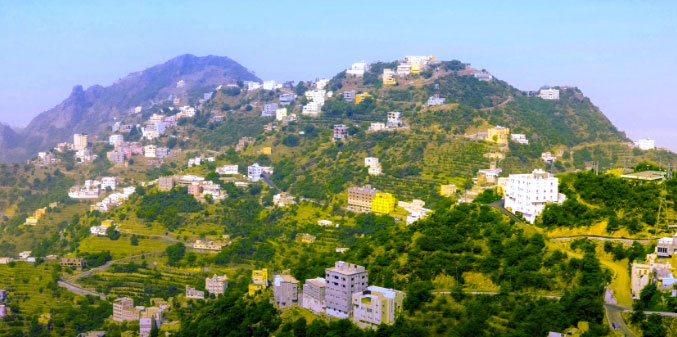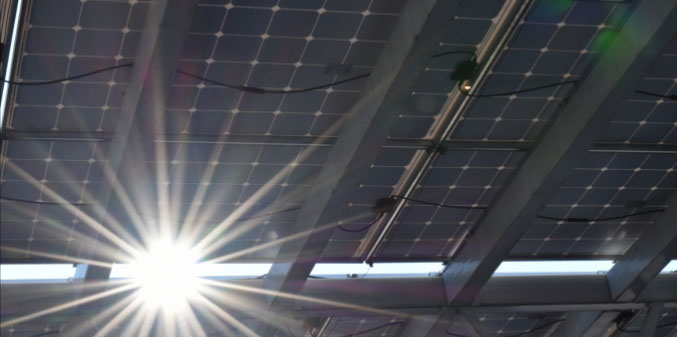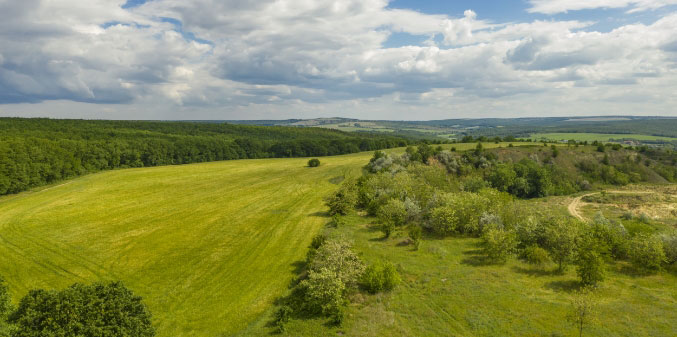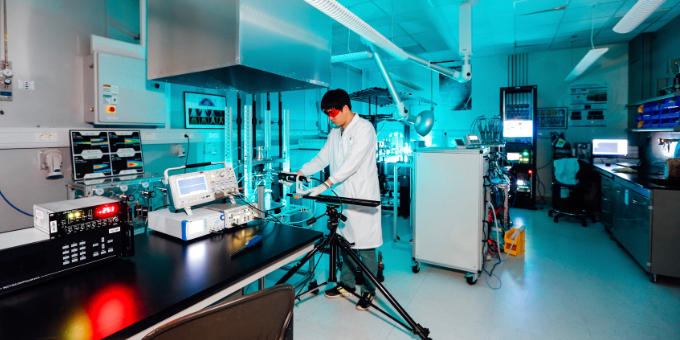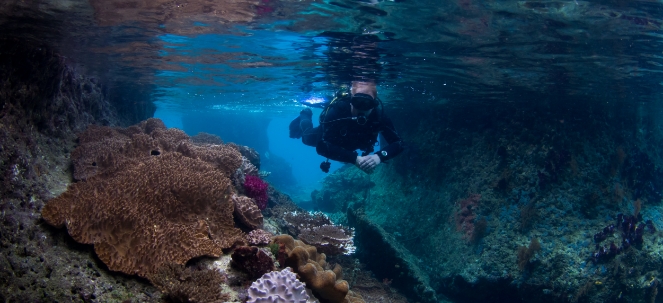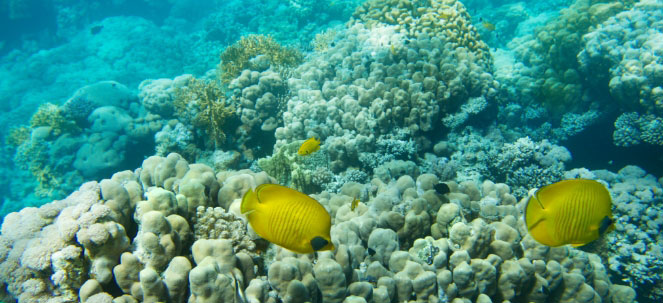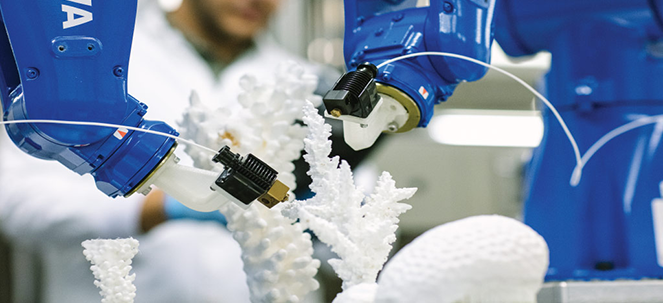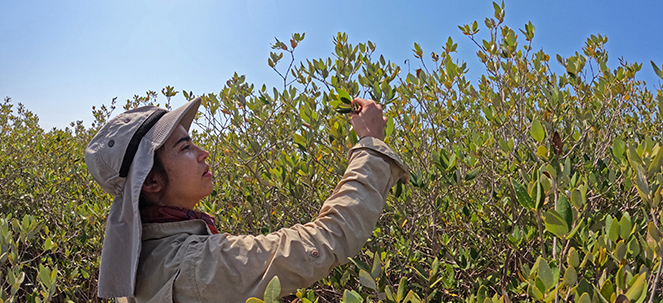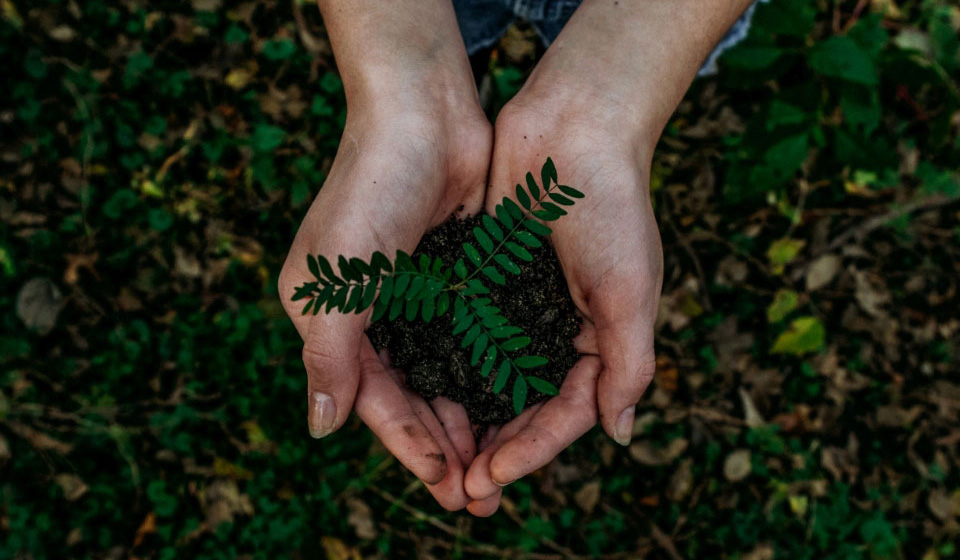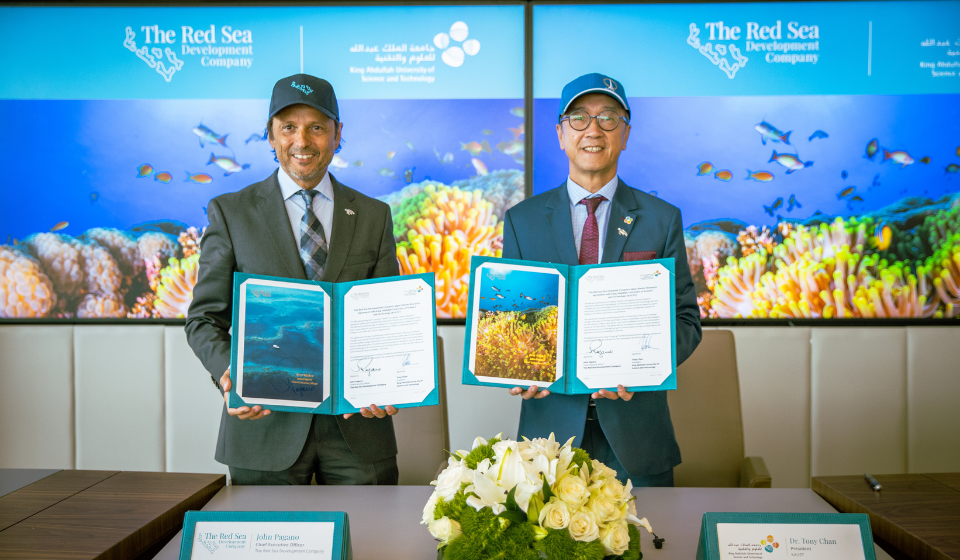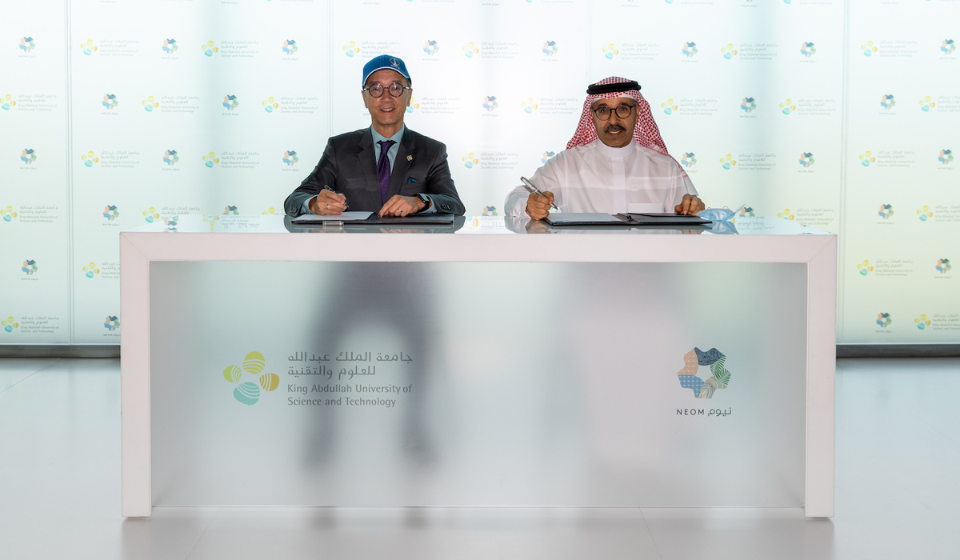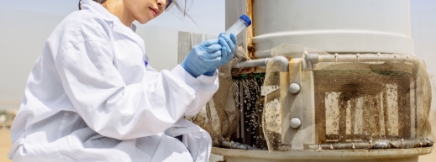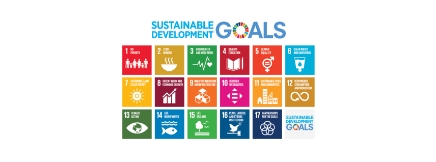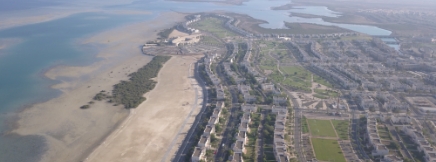KAUST is commited to the Kingdom’s Vision 2030, contributing to its goals on two major fronts: Renewable and Clean Energy; and Environmental Protection, Preservation, and Enhancement.

KAUST’S CONTRIBUTIONS
TO VISION 2030
RENEWABLE AND CLEAN ENERGY
KAUST actively supports the Kingdom’s Circular Carbon Economy (CCE) program:
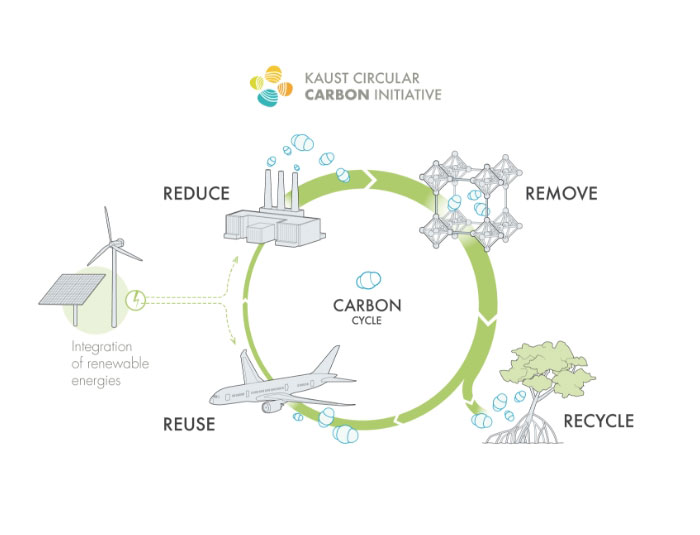
Our Circular Carbon Initiative addresses sustainable carbon management in five areas:
CO2 capture through direct air and point-source capture technologies
Nature-based solutions that emphasize Saudi Arabia’s ecosystems
Geo-solutions, by exploring and quantifying geological storage and geothermal energy potential for CCE
E-fuels, through the manufacture and application of synthetic fuels
Cross-cutting (integration) with renewable energy sources.
ENVIRONMENTAL PROTECTION, PRESERVATION, AND ENHANCEMENT
KAUST is leading the charge to accelerate global research and development for the preservation and restoration of coral reefs
KEY PROJECTS
SAVING THE WORLD’S
CORAL REEFS
The Coral R&D Accelerator Platform (CORDAP) was launched in 2020 by the G20 nations to fast-track research and development of solutions that can save the world’s coral reefs. Proudly, KAUST has been appointed the Platform Central Node, due to its location, infrastructure, and expertise.
CORDAP brings together the best minds worldwide in a transdisciplinary approach to accelerate and scale up the development of new technologies that will support coral conservation efforts and secure a future for world’s warm- and cold-water coral reefs.
TAKING THE GREEN
INITIATIVE
The Saudi and Middle East Green Initiatives are ambitious roadmaps toward sustainability—and KAUST is integral to both.
Most of our research and innovations apply to Saudi Arabia and the region. For example, our pioneering work in green hydrogen production and decarbonizing transportation goes beyond research and development. We’re also applying nascent technology in the real world—for instance, at NEOM, a new urban region on the Red Sea built on sustainability principles.
KAUST is also supporting two new national climate centers for Saudi Arabia aimed at mitigating climate impacts in the Middle East—the National Center for Climate Change, and the Regional Sand and Dust Storms Early Warning and Advisory Center.
ADVANCING SUSTAINABLE
ECONOMIC GROWTH
As Saudi Arabia actively grows its tourism sector, KAUST has partnered with The Red Sea Development Company to provide spatial planning and develop technology that ensures that tourism-related development will enhance, and not jeopardize, marine and coastal conservation.
With our guidance, the company will help conserve and maintain the region’s pristine marine biodiversity, including some of the most resilient coral reefs on the planet, targeting a 30% net conservation benefit by 2040 and a zero-carbon footprint that sequesters carbon from the atmosphere.
BUILDING THE WORLD’S
LARGEST CORAL GARDEN
KAUST has partnered with NEOM – Saudi Arabia’s new, sustainably planned city – to build the world’s largest coral restoration project and coral nursery, as part of NEOM’s commitment to protecting 95% of the nature within its borders.
This 100-hectare reef at the Red Sea’s Shushah Island, in northwest Saudi Arabia, will be KAUST’s largest technology transfer to a commercial partner to date. The project will involve restoration innovations and methods for conserving reefs in a changing climate-knowledge that KAUST can share globally.

